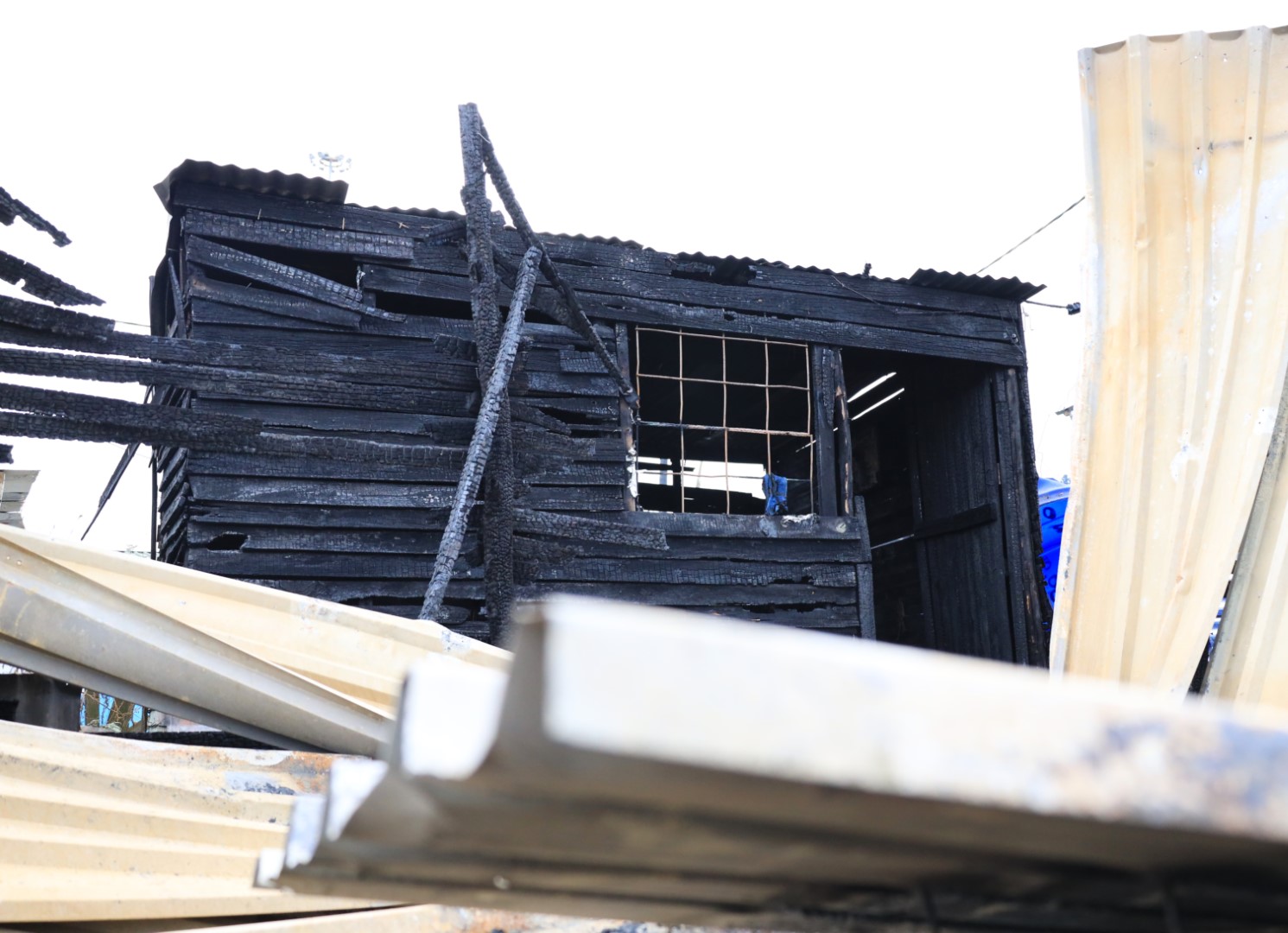Update
GEORGE NEWS - While the cause of Friday 6 June's destructive informal settlement fire that flattened a reported 46 homes in Thembalethu is still unknown, Ward 12's Cllr Eric Mdaka blames the delay in regularising densely populated informal settlements for repeated large-scale fire incidents.
Recalling fires in 2022 and 2023 that each destroyed up to 30 informal structures, including his own home, Mdaka highlighted this was the third major fire since the commencement of his tenure as ward councillor.
As many as 70 informal dwellers were fortunate to suffer only material and emotional losses, as opposed to physical injury or death, when a fire that broke out at about 16:00 in Zone 8 of the township ravaged their homes and all their personal belongings. Mdaka attributed the zero injury and death toll to the fact that many people were still at work at that time.
"When fires start at night while people are asleep, the outcome is often very different," he said.
He applauded the authorities' full-force response to the disaster, but then redirected the focus to what he believes would be a long-term solution to a historical social challenge with dire physical consequences such as this latest fire.

Upgrade shanty towns
First, he said, the process of upgrading informal settlements needs to be expedited. Land needs to be identified where a portion of the informal dwellers can be relocated onto bigger demarcated plots of serviced land that will allow for adequate spacing between dwellings. This will serve the dual purpose of slowing down the rapid spreading of fires as well as allow emergency services quicker access.
"We know it doesn't start with brick houses, but serviced plots that allows for space between dwellings is a good start. Formal housing can be added later," he said.
Once people are relocated, regular inspections need to be done to ensure that nobody else settles there. This, Mdaka says, is where the municipality needs to harness the power on the ground through area and ward committees - the grassroots leadership who make the people on the ground understand. He said empowering the people with knowledge would allow the whole community to be on guard, and the resultant understanding would stave off protests when law enforcement demolishes informal dwellings.

Land invasion and RDP housing allocation
Asked about the availability of land, Mdaka brought up the issue of land invasion by scores of people who have come to George in search of a better life, found vacant land and settled there, apparently without permission. "The more the municipality fails to use the land that is available, the more it gets invaded," Mdaka said.
Finally, he highlighted the role of Reconstruction and Development Programme (RDP) housing allocation in reducing the frequency and impact of fires. Hampered by political, administrative, social and economic challenges, the allocation of RDP housing faces a massive backlog, contributing to ongoing housing insecurity for millions of low-income residents.
"Most people in informal settlements are on the RDP housing waiting list. When allocating houses, authorities must establish who in informal settlements are still on the waiting list, who have been waiting the longest, and place them first."

Previous articles:
- Fire destroys 39 homes in Thembalethu: Aid drive launched
- Thembalethu community unites to assist dozens displaced by fire
‘We bring you the latest Garden Route, Hessequa, Karoo news’
















